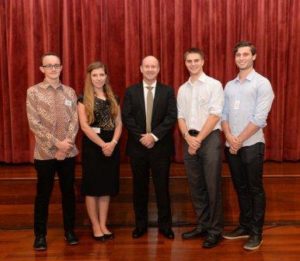
Women with disabilities are among Indonesia’s most vulnerable and discriminated citizens, and Flinders University Honours student James Baker is determined to help them.
In his role as an intern at the World Bank’s Disability Inclusion Unit for PNPM Mandiri (National Program for Community Empowerment) in Jakarta, he has a chance to do just that.
“90 per cent of women with disabilities will experience sexual violence at some point in their life, and that’s something that I feel passionate about changing,” Mr Baker said.
“One of the focuses of my internship at the World Bank has been drafting a program in Indonesia to help end the horrific rates of domestic and sexual violence that they face,” he said.
“I feel really grateful to have had the chance to work on something that hopefully will make a difference to their lives.”
Mr Baker is completing his thesis in Indonesian Studies on the topic of disability rights. He said he was thankful to be based with PNPM, which is the largest community-driven development program in Indonesia.
“PNPM is one of the biggest programs of its type in the world,” he said.
“It’s been great to work here because it dovetails nicely with what I am researching and the broader themes of inclusion, empowerment and human rights.”
Mr Baker’s Australia-Asia Endeavour Award and research for his thesis also recently led to him being invited with other students from Indonesia and Australia to participate in the 2014 Australia Indonesia Youth Dialogue at the Australian Embassy in Jakarta.
Australian Ambassador Greg Moriarty came along to hear the recommendations formed by students, who discussed issues of improving language learning, breaking down cultural stereotypes that both nations have of each another and the exchange of ideas through peer to peer bridge building.
“I felt privileged to have represented Australia at the Youth Dialogue,” Mr Baker said.
“It’s really important for our two countries to discuss how we can improve and maintain our relationship through education and peer to peer bridge building, and this kind of dialogue contributes to that.”


A knowledge of the Indonesian language and the country’s culture, society, and history is an invaluable asset for graduates contemplating careers in government service, private business or teaching in Australia